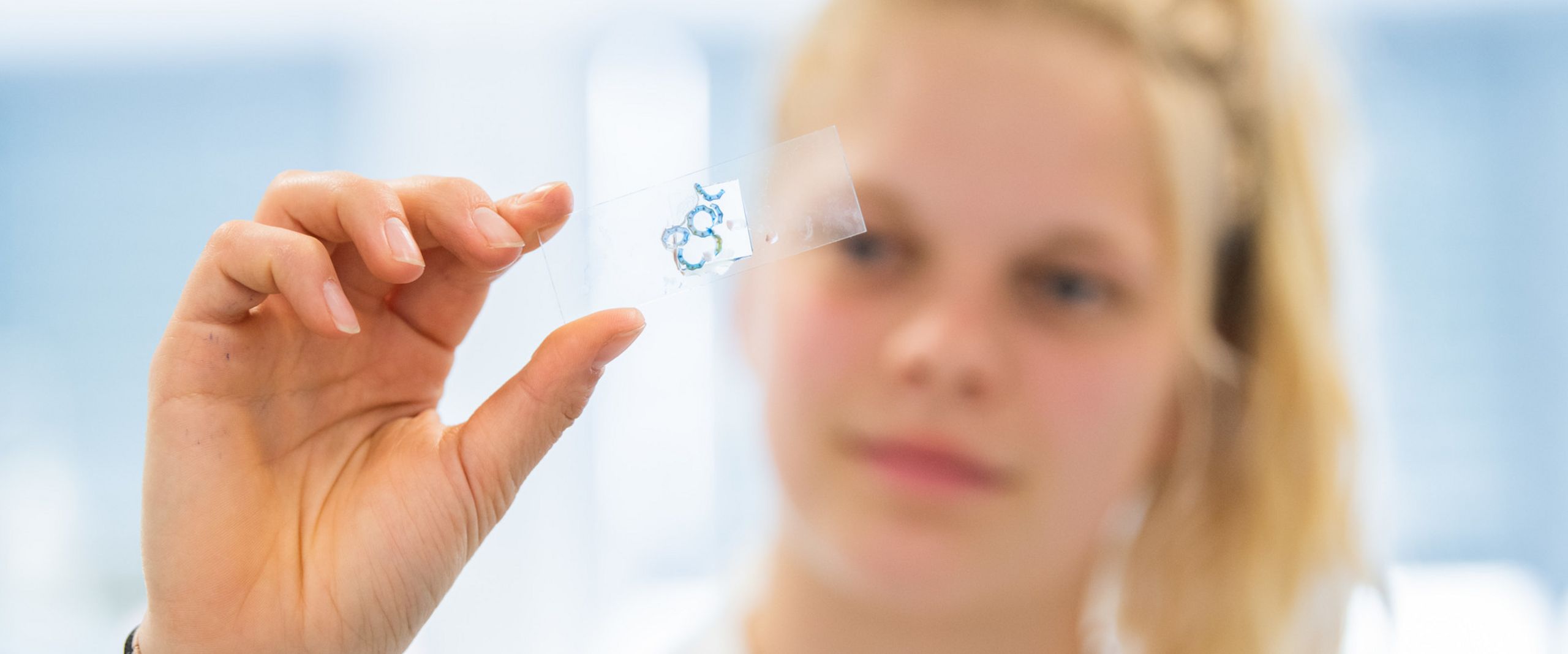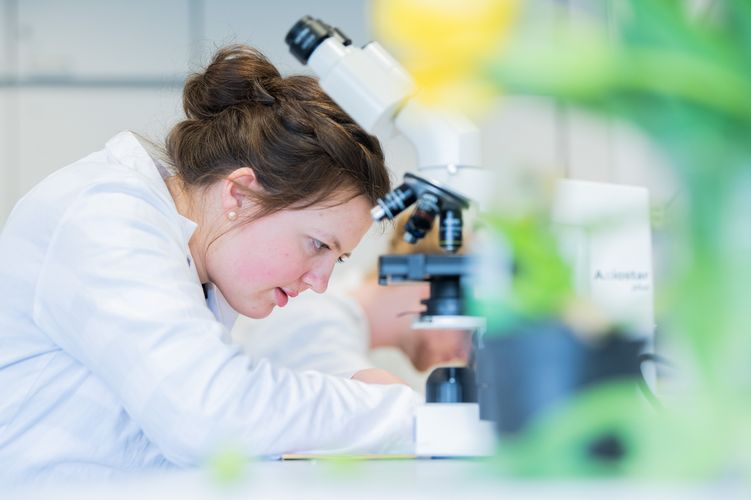
School of Nature and Engineering
| Degree | Bachelor of Science |
|---|---|
| Start of study | Winter semester |
| Application period Winter semester | 01 June until 15 July |
| Standard period of study | 7 semesters |
| Credits | 210 |
| Accredited | Yes |
| Admission restricted | Yes |
| Admission requirements |
|
| Language of instruction | German |
| Faculty/institution | School of Nature and Engineering |
| Stay abroad | Yes |
| Study format | Stay abroad |
Biology is playing an increasingly important role in so many areas. Developments such as climate change and the energy transition, dwindling species diversity or the application of innovative bio-technologies are creating new career fields for graduates of the field. If you are you interested in the study of life, interactions between molecules, cells, organisms and biotic communities, but also in topics such as industrial biology, environmental protection and sustainability, the International Degree Programme Industrial and Environmental Biology, is just the right thing for you. Our attractive programme specifically prepares you for leading positions in practice. It combines a clear scientific biological profile with numerous elements that specifically qualify students for the occupational practice. Special features of the degree programme are, for example, the integrated year abroad with a separate work practical, project studies with partners from the professional practice, laboratory practicals, excursions, scientific business games and project management. We attach great importance to maintaining close contact with companies, public authorities, engineering offices and NGOs.
From the 3rd semester onwards, you specialise either in industrial biology or environmental biology based on the core subject of biology (programme structure below). This explicitly encompasses the interfaces between production, sustainable development, resource and environmental protection.
When you graduate from the programme, you will possess the competences, skills and knowledge required for careers surrounding the application and management of biological systems. The basis for this is provided through a sound scientific competence in biology – from the molecular level to whole ecosystems. Furthermore, great importance is attached to training competences such as communication, teamwork, self-reflection and critical faculties. Knowledge and capacity building with regard to the development of sustainable solutions are an integral part of the programme concept.
The degree programme has a modular design. All modules have the same attendance requirement of four contact hours per week, are completed within one semester and have graded examinations/course work (written examinations, laboratory protocols, presentations).
In addition to biology, the first and second years of your studies are taken up by foundation courses in relevant mathematics and chemistry.
In your third year, you begin profile building with the chosen specialisation during the compulsory phase of studies at a university abroad as well as the work placement abroad.
The final seventh semester deepens this specialisation and is essentially taken up by working on a project in the focus area of biotechnology / bioprocess engineering or applied environmental biology. The project work is usually undertaken in small groups. It includes the independent planning, implementation and evaluation of laboratory and field experiments and is supervised by different professors. The programme ends with a Bachelor's thesis.
English is part of the programme, supplemented by Portuguese, Spanish, French, etc. (as appropriate). Your third year is taken up by the stay abroad with studies at a partner university and a work placement abroad: both are compulsory components of the degree programme. During your stay abroad you will encounter foreign cultures and people and learn to find your way around and study in a foreign, (non-)European country under new learning conditions. In the course of this year abroad, you turn to one of the two specialisations, biotechnology or environmental biology. After your return, you will attend a symposium to present the experiences made during your respective stay abroad in English. These events offer following student cohorts the opportunity to prepare for their year abroad. It is also compulsory to write a report in English that reflects the project work in an academic format.
Every year the HSB also hosts foreign exchange students. These students spend one or two semesters here in Bremen. In this way, internationality is lived in the everyday life of HSB students, which is reflected not least in the fact that many courses are held in English.
Furthermore, internationality is reflected in the fact that academics from partner universities frequently hold guest lectures and deliver compact courses and seminars at the Hochschule Bremen. The custom of inviting guest lectures has been an integral part of the final seventh semester for many years. Likewise, HSB professors are also invited to teach within programmes (mostly Master's level) at partner universities abroad (Bordeaux / France, Groningen / Netherlands, Recife / Brazil, Salford / UK).
Moreover, the members of the Biotechnology Advisory Board either work for foreign companies, usually operate on an international level, or they themselves come from abroad.
„The Industrial and Environmental Biology programme is ideal for people who want strongly practice-oriented and demanding studies in a pleasant, friendly environment, and don‘t see themselves being an anonymous student sitting in a huge lecture hall.“
Jakob Katzenberger ISTAB graduate
Check the application deadlines and admission requirements for your desired degree programme.
Questions about the degree programme can be answered by the contact persons on the degree programme pages. If you have any further questions about your decision to study at HSB, our advisory and service institutions will be happy to help.

![Studentin [Translate to English:] Studentinnen am Mikroskop](/assets/hsb/de/_processed_/c/c/csm_RS7162_0-147-lpr_9dd17def8d.jpg)
![Studierende [Translate to English:] Studenten im Labor](/assets/hsb/de/_processed_/a/7/csm_RS7112_0-89-lpr_f8dff34f63.jpg)

